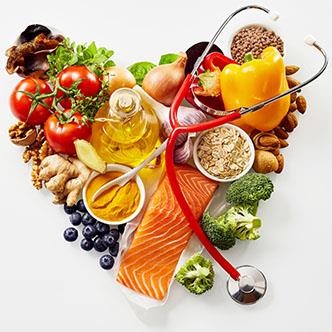
When it comes to heart health, experts advise against added sugars, energy drinks and red meat, while recommending foods like fish, legumes and coffee, based on a guide published today in the Journal of the American College of Cardiology. The guide addresses foods that have controversial effects on health and hopes to settle the debate on many conflicting dietary trends.
“A Clinician’s Guide for Trending Cardiovascular Nutrition Controversies” is the second document of a two-part guide addressing controversial foods. The first, published in March 2017, addressed popular diets and recommended leafy vegetables, blueberries, strawberries, nuts, olive oil and plant-based proteins to promote heart health. It also discouraged consumption of eggs, juicing with pulp, coconut oil, palm oil, and the southern diet, which is full of fried foods, processed meats and sugar-sweetened drinks. These recommendations were based on a thorough review of evidence, which included data from clinical trials and other studies on the health effects of various diets.
Despite these guidelines, there is still confusion about what comprises a heart-healthy diet, and many foods remain controversial both in research and the media.
To help provide further clarity, researchers focused on additional foods and drinks that were not addressed in the initial guide. Recommendations were once again based on a review of evidence and provided clear recommendations for which foods have a positive, negative or unknown effect on heart health.
As can be seen in the figure below, experts have concluded that certain foods have proven cardiovascular benefits: legumes, mushrooms, fish and other foods with omega-3 fatty acids. They also note that coffee, tea and moderate alcohol consumption (up to one drink a day for women and up to two drinks a day for men) can positively impact heart health.

On the other hand, added sugars and energy drinks have both been shown to have negative effects on the heart. Elsewhere in the guide, authors reinforce the fact that high intake of red meat is associated with increased cardiovascular risk.
The biggest gray area, according to authors, is regarding the health effects of dairy products, fermented foods and seaweed.
Data is mixed when it comes to dairy products, and few randomized trials have studied the issue. The “dairy” category is also incredibly broad, as it includes both full-fat and low-fat dairy products that may have different effects on health.
Therefore, authors conclude that the relationship between dairy products and heart health remains unclear. However, they do note that there is a general consensus that full-fat dairy products should be limited given their high saturated fat and sodium content.
Similarly, authors also note that there’s not enough concrete evidence on seaweed and fermented foods to say whether they’re good or bad for heart health. Seaweed and fermented foods like kimchi have become popular in recent years, given their richness in things like fiber, antioxidants and other nutrients. But according to authors, there’s not enough evidence on these foods to recommend or discourage their consumption.